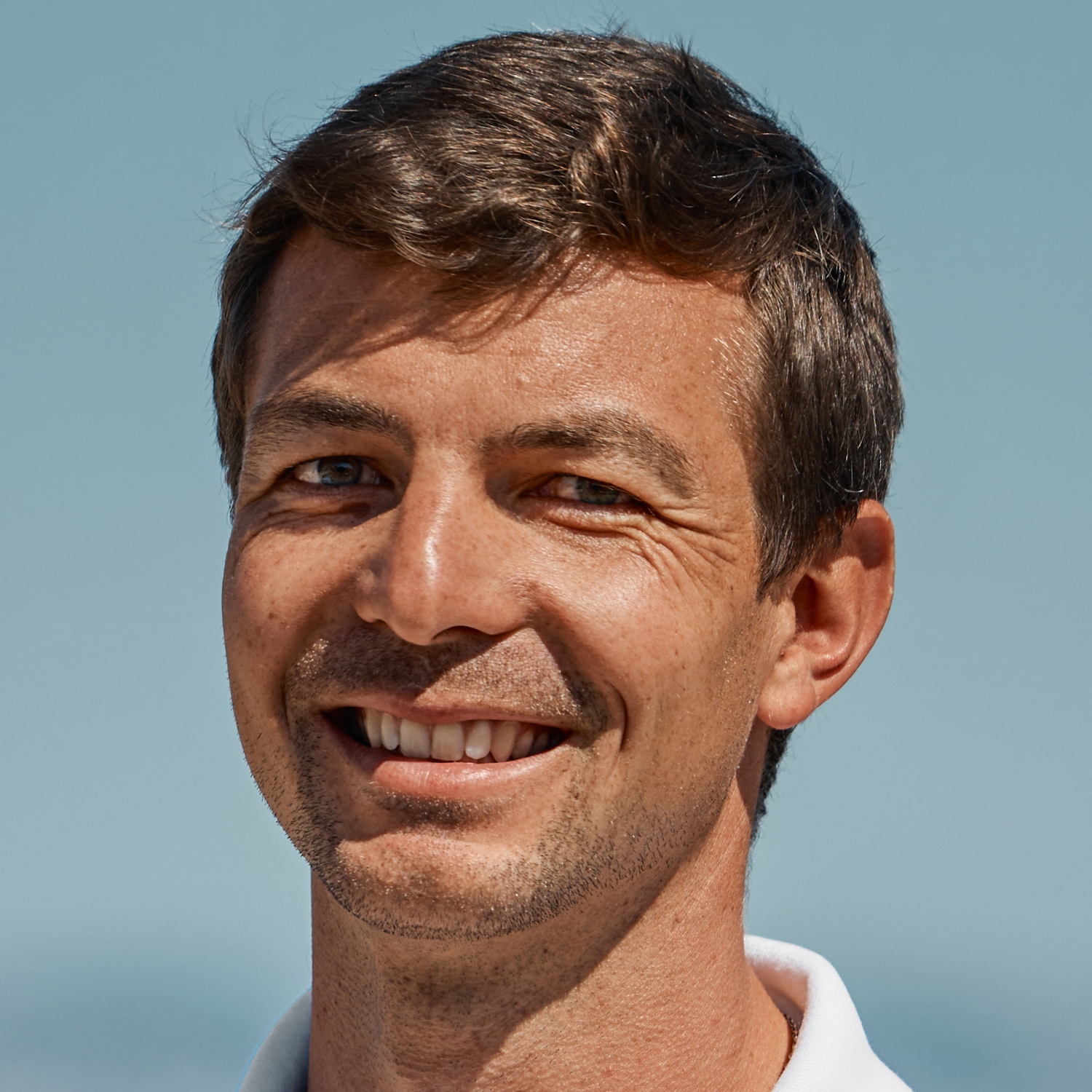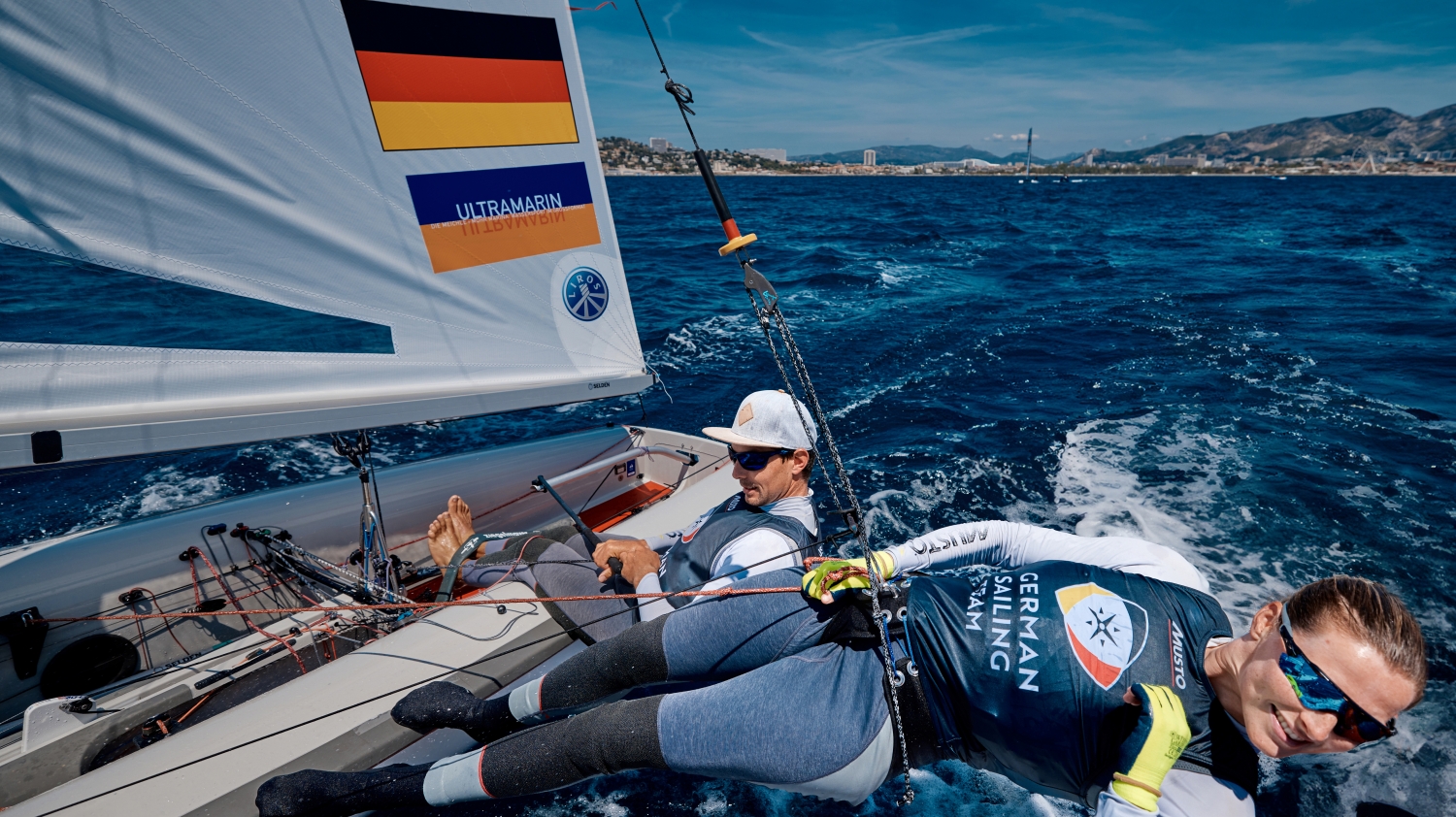Countdown to the Olympics: Law student Simon Diesch sails for Germany
Congratulations on qualifying for the 2024 Olympic Games! What does it mean to you to be competing for the Olympic medals?
Simon Diesch: Thank you. Yes, the Olympic Games are truly a lifelong dream now coming true for me. My sailing partner Anna Markfort and I have worked very hard over the last few years to achieve this goal. The suspense of whether we would manage to come out on top of the strong German competition continued right up to the European Championships in Cannes this May.
What challenges did you have to overcome to qualify for the Olympics?
The qualification was a lengthy process. Ultimately, it came down to three pivotal sailing events: The World Championship and the World Cup this year in Mallorca, and the European Championship in Cannes in May 2024. Our joy was immense, of course. At the same time, this meant the end of the Olympic dream for all the others of my 470 mixed sailor colleagues. We have trained together a great deal, we all get on really well and so you cannot help but empathize. The German sailing association (Deutscher Segler-Verband, short: DSV) announced the German Olympic sailing team only a week ago (end of June). There we all were at the press meeting and, frankly, it is only starting to sink in that we really are going to the Olympic Games.

"Our aspirations for the Olympics are not merely to participate. We are very much after Olympic metal."
How did you come to sailing?
I grew up here at Lake Constance and come from a family of sailors. My father and his brother won the gold medal in the Flying Dutchman in Montreal in 1976. My cousin also sailed at the Olympic Games in Athens in 2004 and in Beijing in 2008 (9th place). Given this environment, I inevitably sat in an Opti for the first time at the age of five. I was actually quite an anxious child. Whenever I was on the water though, I felt completely safe. I never felt scared when I was in a sailing boat, and sailing has become my great passion. Being able to pursue this passion at the highest level is a true blessing. I am very happy that we are able to compete with the world's best sailors at the Olympics.
What do your current preparations for the Olympic competitions look like?
We have been training in Marseilles almost continuously since May. Marseilles has been our central training and competition spot for quite some time. We stayed there for three months in 2022, and another two months in 2023. Each sailing spot has its own unique characteristics. For the Olympic competitions – which will take place in Marseilles – it is paramount to know the local conditions as best as possible.
 © DSV/Felix Diemer
© DSV/Felix Diemer
It sounds like an Olympic sailor travels quite a lot.

That's right. I would estimate that I am on the water for 180 to 200 days of the year. Then there are an additional 60 to 80 days of travel. It takes a lot of organizational discipline to find the time to study as well.
So you are doing your coursework every time the wind fades or when you are on your way from one competition to the next?
Yes, something like that. I have to use all the time slots that open up as effectively as possible. Even before I started studying, I carefully considered which study programme and which university I should choose in order to be able to balance the demands of competitive sailing with my studies. The University of Konstanz is one of the "partner universities of top-level sports" in Germany and therefore offers targeted support to help us athletes manage the balancing act between top-tier sports and studying. I can adapt assignment deadlines to my competition schedule, for example. The university also provides an important advisory service on career development. The university sports team gives individual guidance on how to best manage the demands of study and competition; or, in some cases, what is incompatible. For example, if a study programme requires extensive presence in a lab, it becomes rather difficult to sail at world level at the same time.
The University of Konstanz joined the cooperation agreement for supporting top-class sports in October 2007 and currently hosts 35 elite athletes managing the double challenge of studying and competing in top-level sports. So far, more than 70 top athletes have successfully completed their studies at the University of Konstanz.
What is your next important goal with regard to your studies?
I am about to take my state examination. Therefore, in the winter semester my focus will be on studying full-time and passing my state exam. Once I have registered, there is no way to change the exam date. I am currently particularly interested in insolvency law. We'll see which direction things go for me after the exam.
Everyone here at the University of Konstanz is cheering you on, of course. When exactly do we need to keep our fingers crossed for you?
For us, a normal competition spans across six days. At the Olympic Games this will be from 2 to 7 August. If the wind and weather conditions don't play along during this period, we may still be sailing on August 8 and 9. You can follow the sailing competitions via broadcast.
The important thing is not necessarily to win, but to take part, right? What are your ambitions for the Olympic competitions in August?
Well, our aspirations for the Olympics are not merely to participate. We are very much after Olympic metal. If everything goes right, we have the potential to beat the other teams. We hope to bring our best sailing performance to the waters at the Games. If we can do that, we'll be on the winners' podium.
